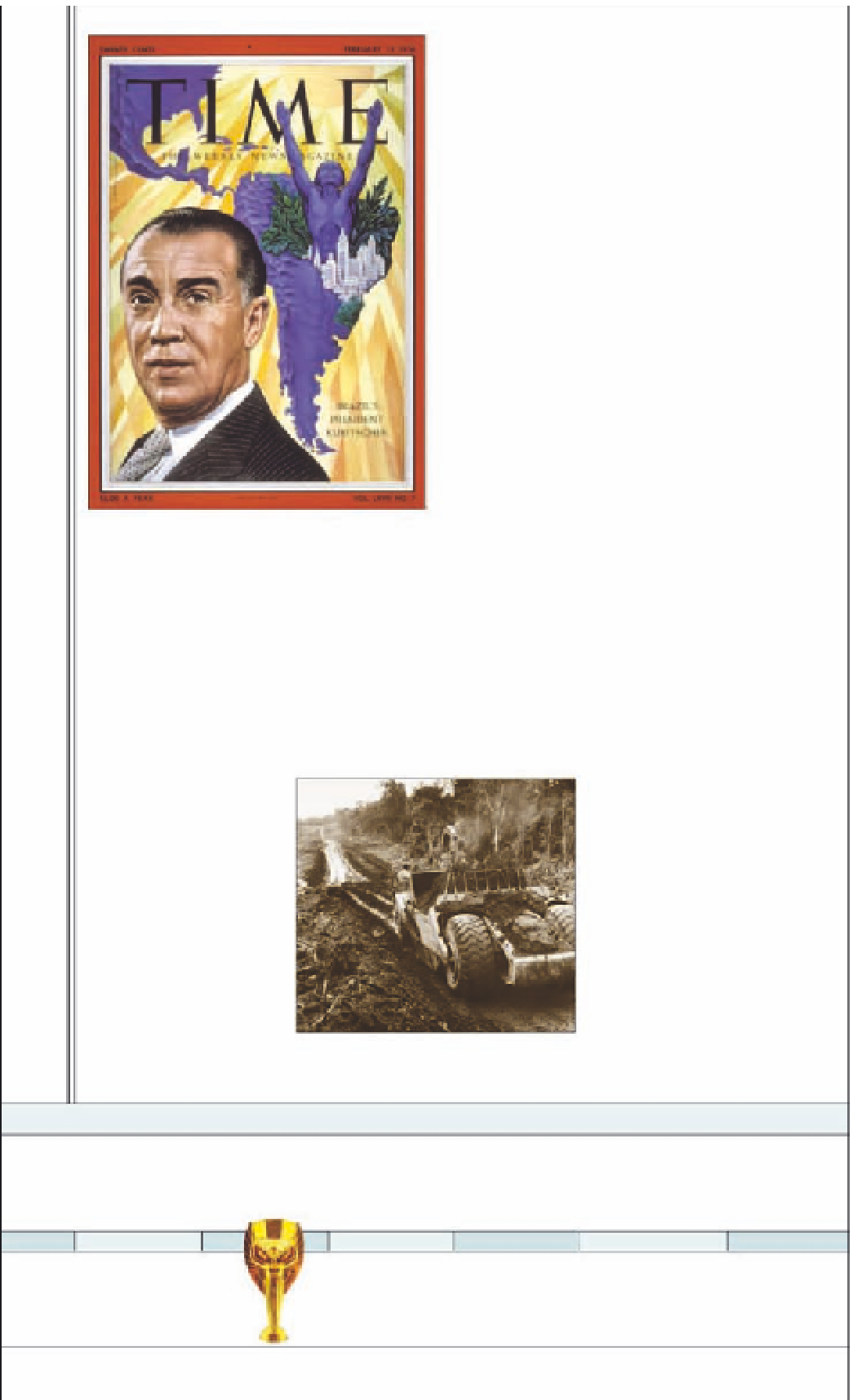Travel Reference
In-Depth Information
nationalistic aspirations was the
creation of Brasília
(see pp294-5)
as the new capital of Brazil.
Despite instilling national
confidence, Kubitschek's era was also
beset with massive inflation. Also, the
influx of foreign capital rapidly
captured domestic industry, and the
urban bourgeoisie found state control
threatening rather than protective.
Mild structural reforms took place
under President João Goulart
(1961-64), but the increasing political
infighting between left and right
culminated in the 1964 military junta.
THE ERA OF MILITARY RULE
A period of right-wing military
dictatorship followed. In a bid to
appease the hard-liners, the new
president, Marshal Humberto Castelo
Branco, recessed and purged
Congress, and decreed the expansion
of the president's powers at the
expense of the legislature and the
judiciary. His gamble curbed the
populist left, but gave his successor,
Artur da Costa e Silva (1967-69), a
basis for authoritarian rule. Despite
their victory, the hard-liners were
still unable to institutionalize their
agenda politically. They did not give
up their liberal con-
stitutionalism as they
feared damage to
their alliance with
the US, the citadel
of anti-communism.
In 1969, the demo-
cratic mask fell off
when General Médici
came to power and
continued to rule an
authoritarian regime
without popular
support. An extremely
President Juscelino Kubitschek on the cover of
Time
magazine dated January 13, 1970
INTO MODERNITY
The reign of Juscelino Kubitschek,
Vargas's successor, lasted from 1956
to 1961, ushering Brazil into
modernity. Campaigning on a
platform of “Fifty years of progress in
five,” Kubitschek tried to achieve this
progress with generous incentives for
foreign investors,
such as low taxes,
privileges for the
importation of
machinery, and dona-
tions of land. All this
gave impetus to the
economic growth
rate, which paved the
way for the economic
boom in the next
decade. The most
notable manifestation
of Kubitschek's
Trans-Amazon Highway construction near
Altamira Brazil, July 1971
TIMELINE
1985
Civilian
Tancredo
Neves is
elected to
presidency
1970
Brazil wins
the soccer World
Cup in Mexico
1977
Dona Flor and
Her Two Husbands
brings international
fame to Brazilian
cinema
1979
General
Figueiredo is
sworn in as
president
1960
Brasília
inaugurated as
the new capital
of Brazil
1970
1975
1980
1985
1960
1965
1961
Janio
Quadros elected
president, replaced
by João Goulart in
the same year
1974
Ernesto
Giesel's rule
begins, marking
a slow return to
democracy
1980
Film
Bye
Bye, Brazil
brings
more recognition
to Brazilian
cinema
1984
Benedita da
Silva becomes
the first black
woman in
Congress
Jules
Rimet
trophy










































